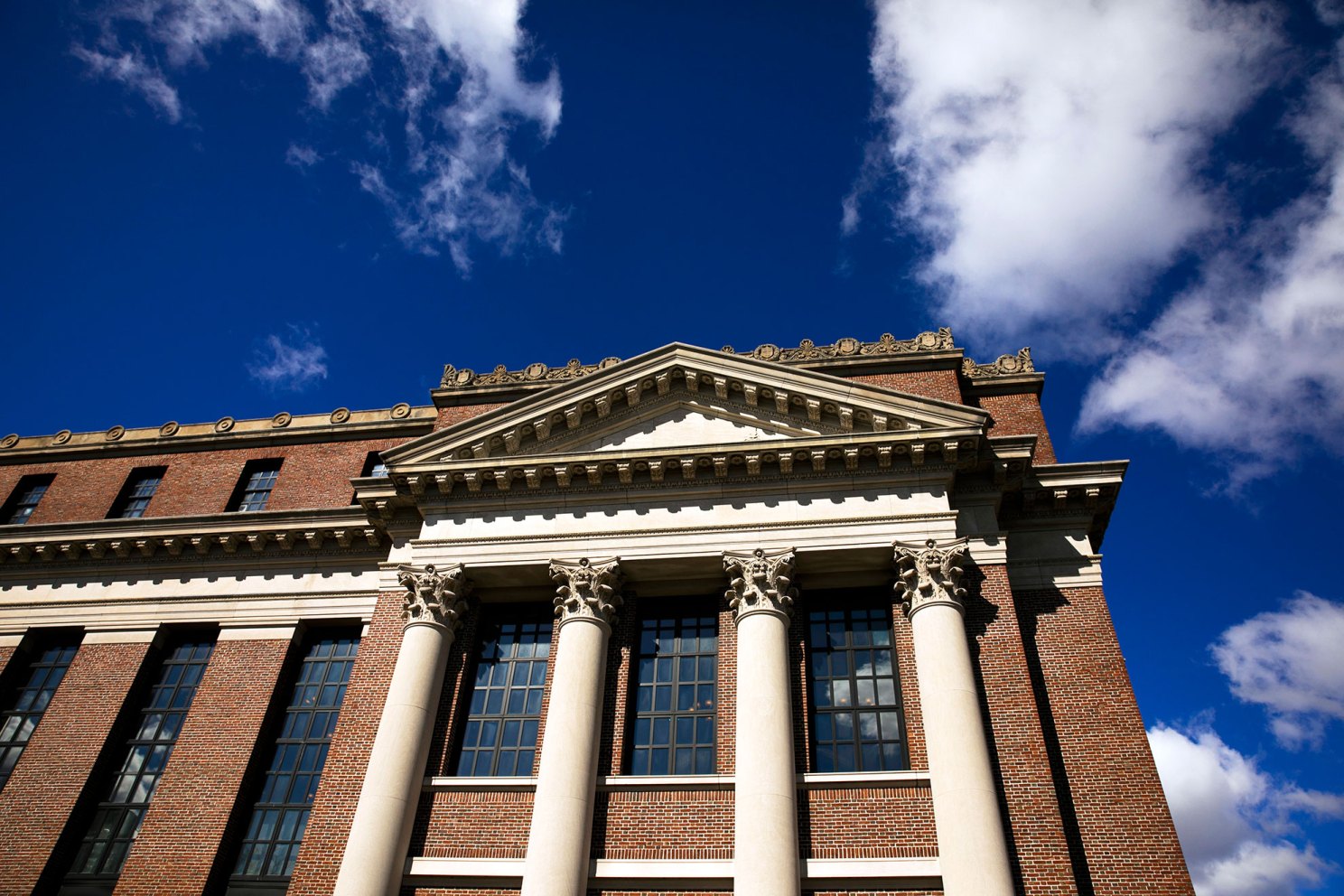Harvard amends lawsuit to push back against new funding cuts

Harvard University.
Stephanie Mitchell/Harvard Staff Photographer
Government is seeking to ‘micromanage’ University, complaint says, posing threat to advances in health and science
Harvard amended its lawsuit against the Trump administration on Tuesday to account for the most recent round of cuts to research funding. The government’s actions violate federal law and the University’s First Amendment rights and have no link to charges of campus antisemitism, the complaint says.
The original complaint was filed on April 21 and asked the court to vacate and set aside the termination of $2.2 billion in grants. Last week, U.S. Education Secretary Linda McMahon informed the University that it should no longer seek federal grants “since none will be provided.” On Tuesday, the federal Joint Task Force to Combat Antisemitism said that Harvard researchers would lose another $450 million in grants from several agencies.
In the weeks since the original suit was filed, Harvard has received grant termination letters from the National Institutes of Health, the U.S. Department of Agriculture, the Department of Energy, the Defense Department, the National Science Foundation, and the Department of Housing and Urban Development. The letters echo one another, saying that awards have been terminated because the projects “no longer effectuate agency priorities,” and that there is, in essence, no way to modify the projects so they would become acceptable.
At risk, the amended complaint contends, is the University’s ability to continue research that has contributed to breakthroughs in health, science, national security, and other fields.
“All told, the tradeoff put to Harvard and other universities is clear. Allow the government to micromanage your academic institution or jeopardize the institution’s ability to pursue medical breakthroughs, scientific discoveries, and innovative solutions,” the complaint says.
Harvard President Alan Garber, in a letter sent to McMahon on Monday, sought to seek common ground with some Trump administration priorities, highlighting University initiatives to fight antisemitism and its efforts to encourage constructive disagreement on campus, among other actions.
“As your letter suggests, we share common ground on a number of critical issues, including the importance of ending antisemitism and other bigotry on campus,” Garber wrote. “Like you, I believe that Harvard must foster an academic environment that encourages freedom of thought and expression, and that we should embrace a multiplicity of viewpoints rather than focusing our attention on narrow orthodoxies.”
But he rejected as unlawful Trump administration demands that include governance and hiring changes and “audits” of student and faculty viewpoints, pushing back against “the federal government’s overreach into the constitutional freedoms of private universities and its continuing disregard of Harvard’s compliance with the law.” The administration, he said, has “ignored the many meaningful steps we have taken and will continue to take to live up to our principles and improve the lives of people across the country and throughout the world.”
The lawsuit argues that the government is seeking to coerce ideological balance and therefore violating the University’s right to free speech. The funding freezes and terminations announced so far also ignore procedures laid out in federal law through which complaints about civil rights violations are investigated and resolved, the University says.
Garber has repeatedly highlighted several University reforms aimed at combating antisemitism. Last month, he accepted the reports of two task forces investigating antisemitism and anti-Muslim and anti-Palestinian bias, describing them before their release as “hard-hitting and painful.”
In his letter to McMahon, Garber said additional steps taken by Harvard in recent months include new investments in the study of Judaism and related fields and new initiatives to make Harvard more pluralistic and welcoming from the standpoint of intellectual diversity. He also disputed claims that Harvard is a partisan institution.
“It is neither Republican nor Democratic,” Garber wrote. “It is not an arm of any other political party or movement. Nor will it ever be.”




